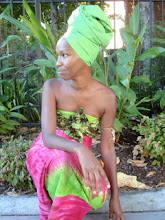From the essay "The Burden of Reflecting: Effort and Desire in Zelda Fitzgerald" by Simone Weil Davis in the Modern Language Quarterly, she points out that Zelda Fitzgerald writes the novel Save Me the Waltz from a bed in a mental hospital. While contemplating her own madness, Fitzgerald roots her pathology in women having to "farm out" their attractiveness by augmenting themselves. Women have to become something other than them. They must become beauty not personified, but beauty itself, so that the act of consuming to redefine beauty becomes the act of labor. This concept brings up the theory of metanarrative and objective correlative for me, which I find is being superimposed on black female pop singers as a new representation of independence.
Davis states that in Fitzgerald's novel, Alabamba, the protagonist, has "the burden of reflection." The flapper is presented as liberated through decorative, metaphoric devices of luxury, debauchery, and hedonism. Within the context of
of postwar decadence and excess, the individual, woman, is disoriented, madden by the cultural seduction of identity. But what is this identity that Alabama is to embrace? Davis reveals through Fitzgerald's work that it is the same position woman as object has always possessed, "residing in Daddy's world."So who is Daddy, F. Scott Fitzgerald, capitalism, "Daddy War Bucks?" And how does this postwar imagery apply to black female presence in the 21st century?
There is an artist name Kelise, who has a rap/song called "Bossy." When I first saw the video on MTV or BET, I am not sure which one, they both play it, I was disturbed. I did not know why, but I knew it had something to do with the reading, with modernism. It was the objective correlative that spark emotional, instinctive responses. What was missing was the metanarrative, the historical positioning itself.
In the video the hook to the rap/song is "I'm bossy, ...that's right...I'm the one chicks love to hate... that's right..." I don't remember the rest. Kelise hair is cut in an asymmetrical style, straight, covering one eye. The clothes she and other women in the video wear are similar to flapper clothes, but shorter, above the knee. The women are eating oysters, octopus legs, shrimp, drinking champagne, and one young black woman pours it on her leg for the viewer to see while a black man next to her stares into the lens, unconcerned to her action.
Here, we have a "blackening" of white upper middle class post WW1 behavior associated by debauchery, overindulgence; Except men, white men, are subjugated. They are waiters who occasionally dance without a tray, but not with the women during what is being described by some Republicans as WW3. Black men sit by passive waiting for the women to take interest in them. Gender and race appear to be subverted. Women seem to have power or act out white male power structure.
Kelise, the main character, rolls around on a carpet, with no one in view, disoriented, bending over backs, in love, lust, with herself or for no apparent reason. However, once I read Davis' explanation of Fitzgerald's work, the metanarrative for Kelise's video emerged.
At the end of the video, Kelise is in a red foreign sports car. The city, not sure where, is deserted. The lights are on in the buildings behind her, but she is isolated, separated, from the city, from the club people, and certainly from her a man, but she is not lonely. Because she is alone, she is the boss. She determines her existence, or she appears to "exert control over her burden of reflection" as stated by Davis.
However, the video is problematic for a number of reasons, but the primary one is the message that a black woman can determine herself through a lens of white female empowerment, that based on Zelda Fitzgerald did not work for her and women like her generation. The other presents questions that come up, like why would the media need to rehash this metanarrative during this war time? Could it be tied to the fact that a number of women, black women are in the armed service? Is it that a number of black women are financially independent from black men while a number of black men are in prison, on the street corner, gay, dating outside their ethnic group, in the service, not acquiring academic achievement in step with black women, so they need to come to terms with being alone? But being alone is something black women already know how to do!
The metanarrative of slavery, where children, parents, husbands, brothers, families were torn asunder for capital gains fill in the gaps of alone time for them. Learning how to be with the other is the struggle, the challenge for them; It is the cry I hear from black women who are in their 20s, 30s, 40s, 50s, and 60s. By seventy, they give in to American society's concept of individualism, which works for no one. It seems this video is suggesting that more fragmentation of self, more alienation, alone time is on the horizon for black women, and I would say the audience the music industry gears these images for Black women in particular, and women in general that they can be their own bosses just as long as they model within a catergory of disassociation to the self, their people, their culture, their womanhood, However, if we do We too might end up in a mental hospital before long.
Monday, January 21, 2008
Subscribe to:
Comments (Atom)
